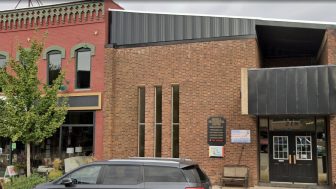Sheridan Correctional Center
4017 East 2603rd Road
Sheridan, IL 60551
About Sheridan Correctional Center
The Sheridan Correctional Center specializes in treating adult inmates with substance abuse and mental health issues. You'll find 'em out in Sheridan, Illinois. With complete dedication to the treatment of substance abuse, this center was reopened in 2004 to tackle the growing number of inmates and ex-convicts struggling with addiction.
The prison is made up of 75 buildings, with 13 housing units, and a 9-bed health care unit. The facility sits on 270 acres with 80 acres inside the perimeter fencing.
Their program features treatment interventions and access to collaborative services provided by the Illinois Department of Corrections and Adult Parole, and other organizations and community addiction treatment providers. They use trauma-informed counseling and cognitive behavioral therapy (CBT) to address the root causes of your addiction and help you understand the potential triggers that can lead to relapse.
One unique feature is family reconciliation programs that help support your eventual reintegration into the community and mend broken relationships. Their life skills training will give you recovery tools and resources like better coping strategies, emotional regulation, and self-care methods that help you with ongoing recovery.
Inmates at this center can access peer support groups such as Alcoholics and Narcotics Anonymous, as well as bible studies and chaplaincy to meet their spiritual needs. Peer education and drug education classes are also provided, as well as anger and aggression management groups, inner circle groups, healthy relationship education classes, and recreational therapy.
There are some amenities at this site. For those who are parents, positive parenting classes are also available. Inmates also have access to a library, as well as academic and career education to set themselves up for a fresh start once they get out.
Amenities
Private drug rehab provides a comfortable, secure environment that allows you to focus on doing the work to get your life back on track. Benefits include a higher staff-to-client ratio, increased one-on-one time with therapists and healthcare providers, private rooms for clients, and customized forms of therapy.
Drug and alcohol rehabs with a river view can help to decrease anxiety, relieve depression, and improve concentration. Being in nature can even provide health benefits for some people, including lowering blood pressure.
There are many pathways to recovery and some journeys take a more labor-intensive approach, by attending a farm-based drug rehab. Farm life has many parallels with recovery: it requires constant tending, nurturing, and creating the conditions necessary to thrive. The benefits of a farm program include learning new skills, building a recovery community, peer support, and contributing to a greater ecosystem.
Recreational therapy uniquely combines therapeutic interventions with an activity, like horse-riding, hiking, wilderness therapy, basketball, tennis, or a full workout. Benefits of recreational therapy include providing a healthy way to work through the emotions of recovery, learning to build and maintain relationships, improving communication skills, and building self-esteem.
Addiction Treatment Programs
Some of the most common services offered in a young adult program in Illinois include individual and group counseling, medication management, educational courses, and 12-step programs. These programs are tailored to address the challenges of this stage of life.
Individuals who are struggling with addiction to drugs or alcohol can get support at an adult program in Illinois. Designed for men and women over the age of 18, these programs offer rehabilitation treatment and recovery services.
Each alcohol rehab in Illinois is unique, but most include three basic aspects of treatment: medical detox, psychotherapy, and medication. Through these methods, participants receive treatment for the physical, mental, and emotional aspects of alcohol use disorder.
Men’s rehab in Illinois typically includes individual, group, and family therapies. Group sessions are conducted with men only, which encourages greater vulnerability and sharing opportunities among participants.
Learn the skills you need to break free from opioid dependence at opioid rehab in Illinois. Program options include detox, inpatient rehab, outpatient rehab, counseling, and medication assisted treatment programs, which are tailored to meet the needs of the individual.
In Illinois, cognitive behavioral therapy is an effective method for addiction treatment. It teaches effective communication skills, provides tools to help people improve mood, and empowers participants to dismiss insecurities that can lead to substance abuse.
Women who have substance use disorders are more likely than men to have co-occurring mental health disorders. Women’s rehab in Illinois often provides treatment for dual diagnosis, so women can get help for their addiction and disorders such as anxiety or depression.
Veteran’s rehab in Illinois is specialized addiction recovery that is dedicated to military Veterans. Treatment often addresses substance use and common co-occurring mental health disorders.
Many substance abuse treatment plans include rational emotive behavioral therapy in Illinois. This treatment replaces negative decisions with healthy ones, helps prevent relapse, provides conflict-resolution skills, and improves interpersonal relationships.
Assertive Community Treatment (ACT) is an integrative, community-based care strategy designed to address the needs of persons with severe and/or complex mental illness or behavioral disorders. ACT is typically provided by a multidisciplinary team of medical and mental health care providers, social workers, therapists, and other specialists, including addiction recovery professionals. These services are frequently provided in the home and community to clients in crisis, those who are clinically unstable, and those who are unable or unwilling to travel to a hospital or clinic for in-person treatment.
Drug rehab in Illinois is designed to help men and women recover from drug addiction. The length of the program and its intensity vary, based on the individual’s needs. It’s important to find the right program to suit your unique situation and challenges.
Levels of Care
Outpatient rehab in Illinois may be brief or long-term, depending on the individual. During this time, you will maintain membership in a support group as well as attend one-on-one counseling sessions. The focus is ongoing development of life skills that will prevent relapse.
An Illinois dual diagnosis program treats both your mental health and recovery needs. Psychiatrists and addiction specialists work together to address co-occurring disorders, such as depression, anxiety, or ADHD.
Aftercare rehab in Illinois lowers the chance of relapse. This program offers support to help you face challenges after you successfully complete rehab. By providing guidance, accountability, and assistance with basic life skills, aftercare gives you confidence to navigate temptations and maintain sobriety.
Inpatient rehab in Illinois features intensive clinical supervision and a highly structured and supportive environment, meaning this level of care is especially well suited for clients just beginning their recovery journey and those at risk of relapse.
The first step toward a drug-free future is typically detox. This initial phase of drug rehab in Illinois can last up to a week. During this time, addictive substances are slowly and safely cleansed from your body.
Sober living in Illinois offers an environment where you can focus on your recovery journey. You’ll live in a drug-free residence, where you’ll contribute to household bills and chores, attend 12-step meetings, and submit to random drug testing. This structured environment can be helpful to maintain sobriety during the first few months of recovery.
Accreditations
Contact Information
Nearby Treatment Centers

62 South Madison Street
Oswego, IL 60543

1310 North Main Street
Suite 207
Sandwich, IL 60548

218 W Madison St
Ottawa, IL 61350

1100 E Norris Dr
Ottawa, IL 61350